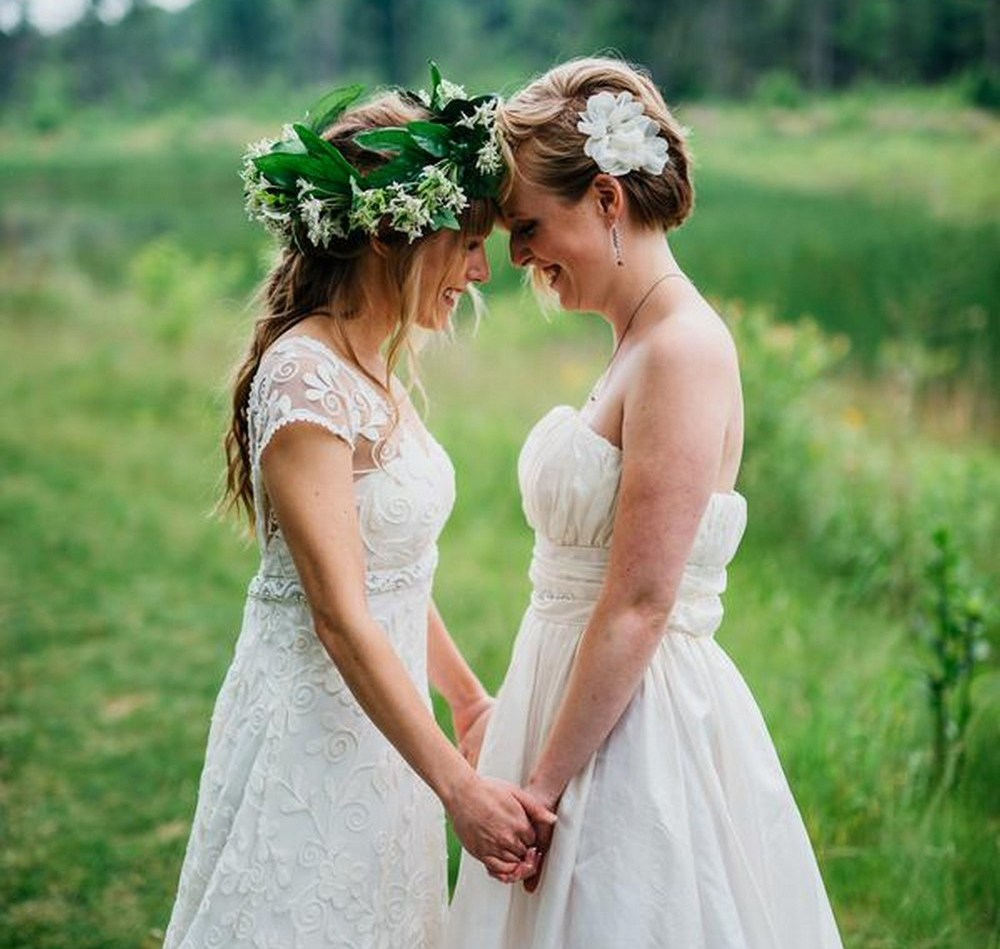
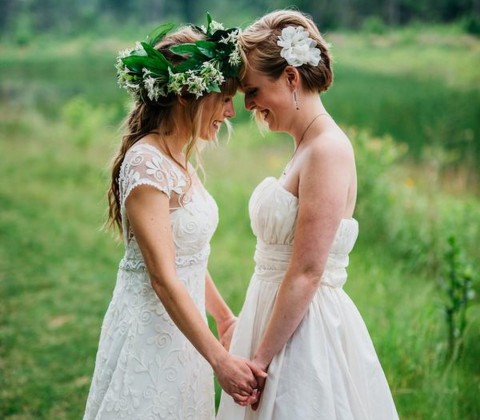
Wedding Dresses That Make The World A Better Place
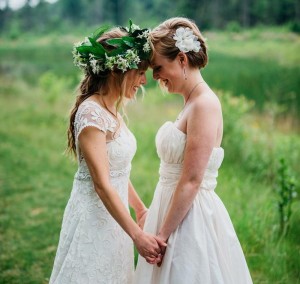 What if finding the perfect wedding dress had a lot more to do with how it impacted the world than it did in just making someone feel and look like a bride? The Feminist Bride aims to help fiancés bring more meaning to their wedding through better social practices, so when I met founder, Marcie Muehlke at (un)convention Brooklyn last fall I had to share what amazing things her wedding dress company, Celia Grace was doing. Celia Grace is a women-led wedding dress company that helps impoverished women abroad (fair trade) and brings handmade, environmentally friendly and sustainable gowns to the wedding industry. If brides want to really wow guests on their wedding day, a Celia Grace dress adds an extra layer of eco-feminist thoughtfulness, empowerment and compassion that is hard to come by in the wedding dress industry.
What if finding the perfect wedding dress had a lot more to do with how it impacted the world than it did in just making someone feel and look like a bride? The Feminist Bride aims to help fiancés bring more meaning to their wedding through better social practices, so when I met founder, Marcie Muehlke at (un)convention Brooklyn last fall I had to share what amazing things her wedding dress company, Celia Grace was doing. Celia Grace is a women-led wedding dress company that helps impoverished women abroad (fair trade) and brings handmade, environmentally friendly and sustainable gowns to the wedding industry. If brides want to really wow guests on their wedding day, a Celia Grace dress adds an extra layer of eco-feminist thoughtfulness, empowerment and compassion that is hard to come by in the wedding dress industry.
1. Could you please describe the mission of Celia Grace? Celia Grace helps brides look and feel more beautiful than they ever have before with a wedding “gown that gives back” and helps women and families around the world. Our dresses are Fair Trade, many use heirloom eco silks, and we make a one-for-one donation of a school uniform for a child in need in Cambodia with each dress sold. …We also want to show couples a wedding can reflect who they are and what they care about rather than empty [wedding industry-pushed] “stuff.”
2. Who are the women workers abroad that you are trying to help? At Celia Grace, we work in prevention. By providing safe, stable, empowering jobs that pay a living wage we give women financial strength and independence. According to the International Center for Research on Women, “When women earn an income, they are more likely than men to spend it on food, education, and health care for their children and families [and it can be] empowering: it boosts women’s self-esteem and bargaining power within the household, gives them more mobility and exposes them to new ideas and knowledge.” By buying handmade silks from rural villages, we invest in those who need it most and use it best – poor, rural women. By providing income locally, we are working to prevent women from needing to move to the city, or another country where they are at higher risk of exploitation.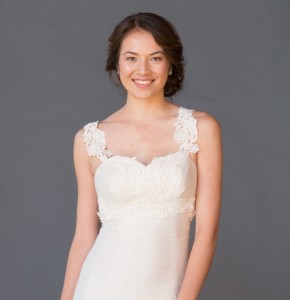
3. You name your wedding dresses after famous and important women, what inspired you to do that? My mother was always talking to me about inspiring women and it was a source of inspiration and confidence for me. Naming our dresses after important women is just one more way we add meaning (and fun!) to our wedding dresses.
4. Your website says that most wedding dress fabrics are made with petroleum, which is unsustainable and bad for the environment in many ways, what type of fabrics should a discerning bride keep an eye out for? Look for natural fiber fabrics like silk and cotton and for organic versions of them when possible. Recycled polyester or re-used or up-cycled fabrics are another great eco option. Whenever possible, Celia Grace uses silk that is hand-woven on traditional wooden looms. Our silk uses no electricity to make, very little water, and no dangerous chemicals. It also helps to preserve a traditional art form.
5. The website EarthEasy reveals that, “12 million tons of textile waste is generated each year in North America amounting to approximately 68 lbs. of waste per household per year! An astounding 5% of all landfill production is textile waste.” What do you think about the “trash the dress” tradition? We have several styles that convert from long to short and have heard from many brides who plan to wear their dresses again. We hope that brides will wear and love our dresses once, many times, or pass them on to someone else.
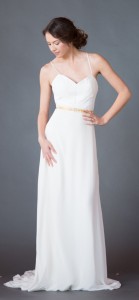 6. What type of difference does buying Fair Trade and environmentally sustainable make on the bride, wedding industry and world? Couples spend $50 billion each year on weddings – imagine if just a tiny fraction of that went to eco and ethical products? It would make a huge difference! I like to think of the wedding dress as a “gateway” purchase to the eco and ethical shopping world. People put a lot of time, thought, and money into their dress purchase and often learn about eco and ethical clothing this way. They then go on to purchase in a green and socially responsible way for other wedding items and in the future.
6. What type of difference does buying Fair Trade and environmentally sustainable make on the bride, wedding industry and world? Couples spend $50 billion each year on weddings – imagine if just a tiny fraction of that went to eco and ethical products? It would make a huge difference! I like to think of the wedding dress as a “gateway” purchase to the eco and ethical shopping world. People put a lot of time, thought, and money into their dress purchase and often learn about eco and ethical clothing this way. They then go on to purchase in a green and socially responsible way for other wedding items and in the future.
7. What is your retail range for a dress? Our dresses cost $700 – $3,000.
8. In 2012, Vera Wang brought the non-white wedding gown to forefront of fashion and in 2015, Betsey Johnson created a gender fluid wedding line; in keeping with making the wedding gown industry a better place, has Celia Grace considered creating wedding attire that offers more than just a bridal white gown? We now offer several wedding dresses in a range of colors! We look forward to expanding our style offerings but for right now are staying focused on wedding dresses.
RELATED ARTICLES:
Jewelry that Empowers Survivors of Human Trafficking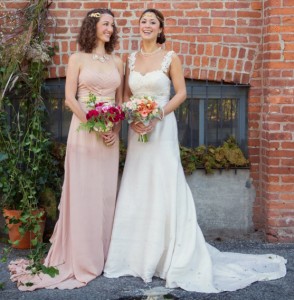
Easy Ways To Green Your Wedding
Creating a Socially Responsible Wedding
Worried about A Wasteful Wedding?
An Engagement Ring’s Second Chance
A Wedding Centerpiece You Can Eat
